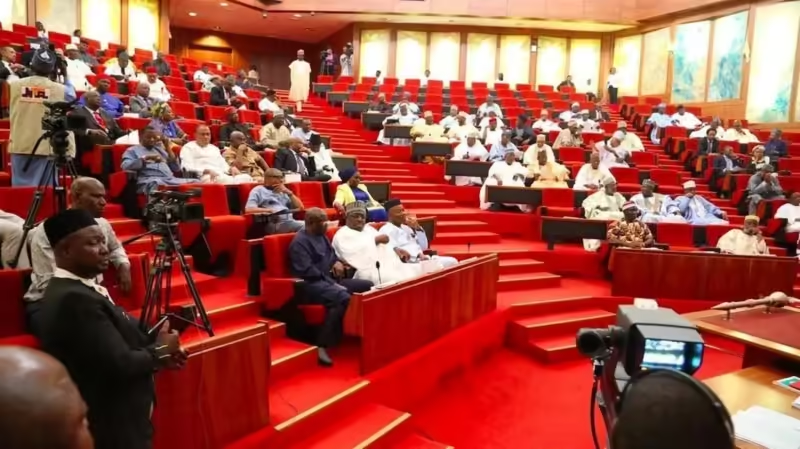The Senate’s bold move to redefine Nigeria’s monetary landscape has been met with anticipation as stakeholders await further deliberations on the bill.
Abuja, Nigeria — The Nigerian Senate has advanced plans to reinforce the country’s monetary sovereignty by introducing a bill to prohibit the use of foreign currencies for payments and transactions within Nigeria.
The proposed legislation, which passed its first reading, aims to restore confidence in the naira and promote its exclusive use in the nation’s financial system.
Titled “A Bill for an Act to Alter the Central Bank of Nigeria Act, 2007, No. 7, to Prohibit the Use of Foreign Currencies for Remuneration and for Other Related Matters,” the bill is sponsored by Senator Ned Nwoko (PDP, Delta North), Chairman of the Senate Committee on Reparations and Repatriation.
Senator Nwoko highlighted the dominance of foreign currencies, such as the U.S. dollar and British Pound, in Nigeria’s financial system, which he described as a “colonial hangover” undermining the naira’s value. He stated that despite gaining political independence in 1960, Nigeria has yet to achieve economic independence.
The bill seeks to outlaw foreign currency payments for salaries, goods, and services, ensuring that all financial transactions within Nigeria are conducted in naira. It also mandates the use of naira for payments related to exports, such as crude oil, requiring international buyers to purchase the currency, thereby increasing its demand and value.
Key Provisions of the Bill
Ban on Foreign Currency Payments: All salaries, including those of expatriates, and transactions must be conducted in naira. The move aims to eliminate discriminatory practices and foster confidence in the local currency.
Mandatory Naira Payments for Exports:
Crude oil and other exports will be sold exclusively in naira, compelling international buyers to acquire the currency.
Transition to Naira-Centric Financial System:
Positions the naira as the central currency for all financial operations, strengthening its role in the economy.
Elimination of the Parallel Market:
Proposes abolishing informal currency markets to curb unethical practices like round-tripping by banks.
Support for Local Manufacturers:
Directs banks to provide affordable loans to stimulate industrialization and economic growth.
Reform of Foreign Reserve Practices:
Advocates for domestic storage of foreign reserves to reduce exposure to external economic vulnerabilities.
Comprehensive Economic Policies:
Encourages a holistic approach to economic development, emphasizing local production, financing, and innovation.
Senator Nwoko described the bill as a “visionary blueprint” for Nigeria’s economic independence, designed to challenge colonial-era practices and establish a self-reliant economy. If passed, he added, the legislation would pave the way for industrial growth, cultural pride, and sustainable economic development.
The Senate’s bold move to redefine Nigeria’s monetary landscape has been met with anticipation as stakeholders await further deliberations on the bill.










Join our Channel...